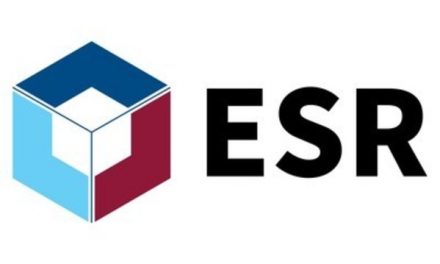HONG KONG, May 31, 2021 /PRNewswire/ — “PropTech: Asia and Beyond”, the most highly-anticipated PropTech event in Hong Kong, jointly organized by Asia PropTech and Invest Hong Kong as part of the annual flagship StartmeupHK Festival 2021, successfully concluded on Tuesday, May 25. The two-day online plus onsite events attracted Asian property companies, startups, investors, industry leaders, and academics, among others. Participants reached the consensus view that the COVID pandemic has accelerated business and governmental efforts to improve housing construction through technology in an effort to achieve global energy efficiency, emissions reduction, and ESG (Environmental, Social, and Governance) goals, thereby raising the value of real estate.
The 2 days event drew more than 1000 delegates and well over 40 speakers to share their views on industry-shaping issues, including property technology in the context of the evolving sector and urban landscape, as well as strategies and solutions to effectively address real challenges and global issues in the property space through webinar and physical exhibition. The Summit is co-organized by MaGESpire and Radiant, with generous support from Fonto Holdings.
The first day of event and open ceremony were officiated and kicked off by Paul Chen, co-founder of APT and Bonnie Lau, Founder of MaGEHold/ MaGESpire.
A wide range of topics, preeminent speakers, and ample opportunities for networking and learning made Day One of “PropTech: Asia and Beyond” a rich experience. Christina Gaw, Managing Principal and Head of Capital Markets at Gaw Capital, argued that technology is an essential component of any industry and the property sector is no exception. However, the COVID pandemic has highlighted the obsolete and insufficient adoption of PropTech. In particular, the use of data in transaction, financing and operational management remains inadequate and opaque. The pandemic has also slowed the execution of property trades and revealed the lack of management of otherwise well-built properties.
Traditional property developers face a number of challenges in embracing technological transformation. Damien Wu, Director of Digital Transformation at Chinachem Group, said that his company has stayed open-minded since the start of transformation planning. The company has interacted with different innovators in the industry, including start-ups and other technology firms in the region. Chinachem has also set up a venture capital fund to invest in a portfolio of start-ups and has engaged different stakeholders in discussions across various social platforms. According to Akina Ho, Head of Digital Transformation and Innovation at Great Eagle Company Limited, real estate companies must have three pillars for digital transformation: customer experience, operational processes, and a business model. The technology professionals that the real estate companies employ should be positive thinkers, team players, and quick learners that demonstrate expertise, loyalty, creativity, and other desirable qualities.
Andrew Baum, a renowned professor of PropTech at the Saïd Business School, University of Oxford, concluded on Day 2 by pointing out that the world has set a 2030 goal for energy efficiency, emissions reduction, and climate change. Further, he noted that today’s homebuyers risk losing value if they resell properties after 2030 that underperform in terms of energy savings and emissions reduction. Therefore, the real estate market needs a robust system to assess overall performance and to incentivize the construction of high-quality properties.
PitchStart!, a PropTech startup competition, was launched in the second half of Day 1. Twelve teams were shortlisted for the final round, where they made pitches to the investor judges.
On Day Two, the Festival hosted the PropTech for Youth event. The opening ceremony was officiated by Leo Lo, Founder of Asia PropTech, LU Chin Yung, Senior Manager (StartmeupHK) of Invest Hong Kong, and Professor David Chan, Director, School of Hotel and Tourism Management at the Chinese University of Hong Kong. Mr. Lo said that the awareness of PropTech in Hong Kong has increased over the past two years, and top-tier property developers have begun offering internships to young technologists. Mr. Lo also pointed out the many constraints on the further adoption of PropTech, including insufficient technology education, limited remaining upside for the local PropTech market, and conservatism among venture capitalists, etc. He expects the COVID pandemic to stimulate the growth of PropTech and industrial innovation, thus increasing the industry’s market competitiveness. At the venue, 15 PropTech start-ups set up booths to showcase a range of their research products and technologies. While there, Mr. Lo shared his belief that BuildTech would likely be the first component to effectively reduce property operating expenses, and in turn, increase margins.
About Asia PropTech (APT)
Asia PropTech is a community/association that connects PropTech players and industry stakeholders in Asia. It aspires to promote the adoption of PropTech in Asia and facilitate intra-regional trade in PropTech through events, knowledge sharing and management, and strategic partnership with PropTech peer organizations in Europe and the United States. Asia PropTech also actively engages stakeholders such as governments, real estate developers and institutional investors, and is committed to promoting the adoption of technology, or even business model innovation, to solve the challenges of the real estate industry today. In 2018, APT held summit Propteq Asia 2018 in Hong Kong’s Cyberport. It was a senior networking summit for the world’s leading real estate technology firms and potential partners to better understand the future of property innovations and develop investment opportunities. Two hundred of the world’s leading real estate innovators have been invited to co-host talks on the challenges and opportunities in PropTech (Property Technology).




